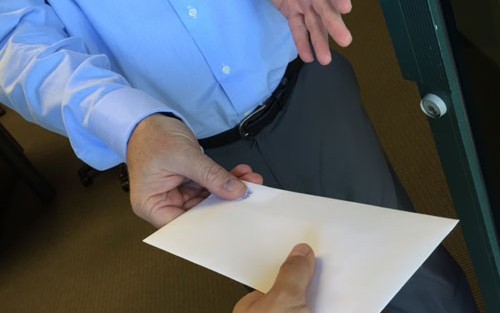


Process serving in England & Wales is the act of delivering legal documents to individuals or organisations as part of the legal process.
The legal documents that are typically served include summonses, complaints, subpoenas, and insolvency demands & proceedings.
The process server is responsible for ensuring that the documents are delivered to the correct recipient in a timely and professional manner.
Process serving is an important part of the legal system in England & Wales, as it ensures that individuals and organisations are notified of legal proceedings and have the opportunity to respond.
In order to be a process server in England & Wales, the ABI expects individuals to meet certain requirements and follow specific procedures.
Firstly, individuals who wish to become process servers must be at least 18 years of age, hold professional indemnity insurance at the ABI minimum level of cover (£500,000) and not have any unspent relevant criminal convictions. They must also be registered with the Information Commissioner’s Office, be free any monetary judgments and other signs of insolvency. They must have a good understanding of the legal system in their respective jurisdiction, be it England & Wales or Scotland and be familiar with the rules surrounding the service of legal documents.
The process server must also ensure that the legal documents are served in accordance with the rules set out in the Civil Procedure Rules or Insolvency Rules for England & Wales. These rules dictate how legal documents must be served and the time frame within which they must be served. For example, the rules state that a claim form must be served within four months of the date it was issued.
There are several methods of serving legal documents in England & Wales. The most common method is personal service, whereby the process server delivers the documents directly to the recipient. If the recipient is not available, the process server may be permitted in certain cases to leave the documents with someone who is over 18 years of age and who lives or works at the same address as the recipient. If the recipient cannot be located or refuses to accept the documents, the process server may attempt to serve the documents by alternative means, such as post, email or social media. However, these alternative methods are usually only allowed if the court gives permission.
Once the legal documents have been served, the process server must provide evidence of service in the form of a statement or certificate of service. In some instances, the evidence may be required by affidavit (a sworn statement). This evidence confirms that the documents have been served and includes details such as the date, time, and method of service.
In conclusion, process serving in England & Wales is an important aspect of the legal system, ensuring that individuals and organisations are notified of legal proceedings and have the opportunity to respond. Process servers must meet certain requirements and follow specific procedures to ensure that legal documents are served in accordance with the rules set out in the Civil Procedure Rules.
The Association of British Investigators will help you find an experienced process server available to deal with your requirements, here.